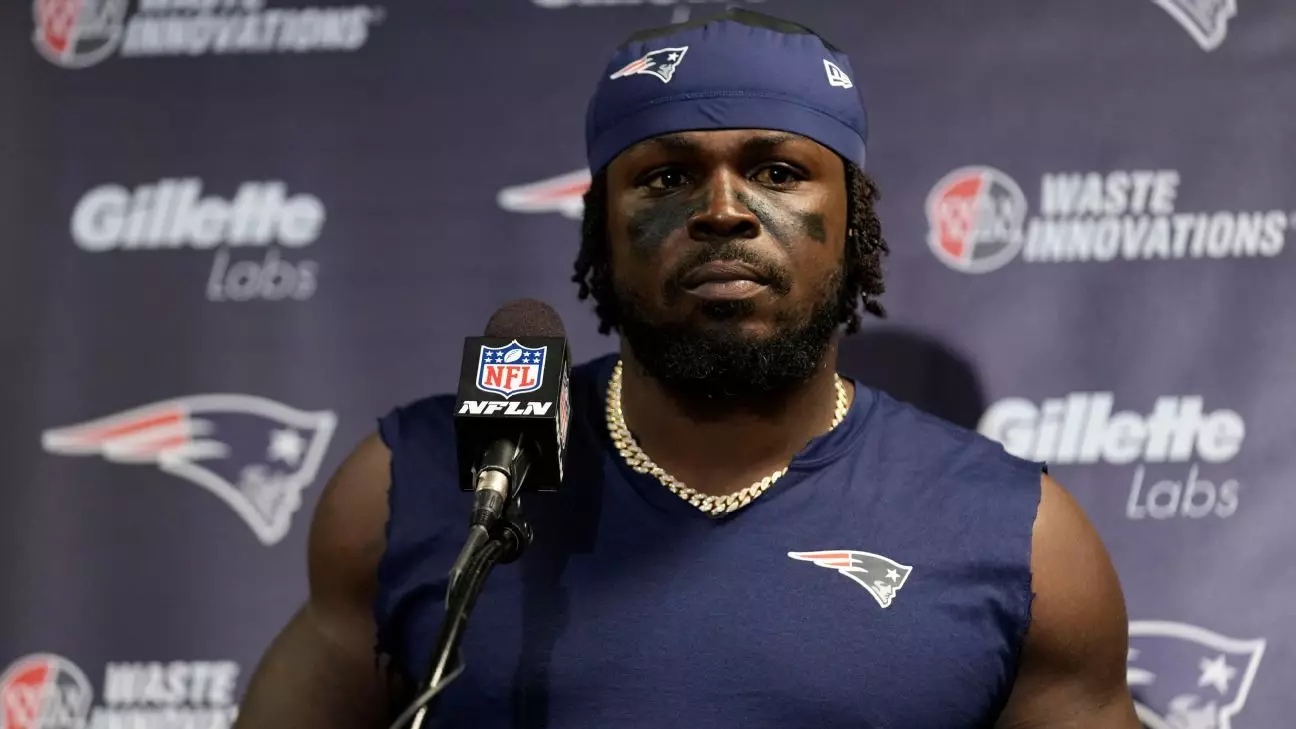The sports world often finds itself entangled in difficult legal and ethical dilemmas involving its athletes. One of the most recent incidents centers around New England Patriots safety Jabrill Peppers, who is currently facing serious legal charges. With the stakes high and the spotlight glaring, the situation has laid bare the intersection of personal conduct, professional accountability, and the NFL’s broader policies.
In early October 2023, Jabrill Peppers was arrested in Braintree, Massachusetts, following an altercation which resulted in charges of assault and battery, strangulation, and drug possession. According to reports, police responded to a domestic disturbance call that outlined allegations of physical violence directed at a woman, including choking and forcibly removing her clothing. Such serious charges inevitably prompted immediate media attention and public scrutiny, not only of Peppers but also of the NFL’s response to potentially criminal behavior among its players.
Peppers’ legal troubles escalated when he pleaded not guilty to the charges, asserting his innocence while the legal process unfolded. During a pretrial hearing, his lawyer indicated that Peppers rejected a substantial financial settlement offer from the plaintiff, suggesting there might be more to the accusations than meets the eye. The complexity of the situation is magnified by contrasting narratives, with Peppers’ attorney claiming to possess video evidence that undermines the alleged victim’s claims. Meanwhile, the plaintiff’s legal team disputed the representation of their settlement discussions, creating a murky narrative that invites skepticism regarding the underlying facts.
The NFL has a stringent Personal Conduct Policy designed to maintain the league’s integrity and address allegations of misconduct among its players. As part of this framework, the league placed Peppers on the commissioner’s exempt list, a move that effectively sidelined him from both team practices and games. However, the league recently announced that Peppers has been removed from this list, allowing him to return to team activities. This reinstatement, while significant for Peppers’ career, does not negate the ongoing investigation into his conduct.
In its statement, the NFL clarified that the removal from the exempt list does not conclude the investigation, which will persist alongside the legal proceedings. This dual inquiry—by the NFL and the judicial system—highlights the complexity of the situation. It poses questions about accountability and the implications for Peppers’ career with the Patriots as they navigate this judicial and reputational minefield.
The New England Patriots have publicly expressed their commitment to a thorough process, stressing their intolerance for domestic violence while acknowledging the need for Peppers to undergo due process. Coach Jerod Mayo’s remarks reflected a wider organizational ethos that abhors violence but also recognizes the nuances involved in the legal process. Mayo stated that any form of domestic violence is unacceptable and emphasized a need to wait for the legal resolution before making definitive judgments about Peppers’ future.
This dual stance presents a balancing act for the franchise as it weighs the seriousness of the charges while also considering the personal circumstances and livelihoods of the athletes involved. Peppers, a team captain and fairly well-respected player, faces not just potential legal ramifications but also the weight of public opinion that comes with such serious allegations.
The unfolding case of Jabrill Peppers raises important questions about the culture surrounding professional athletes, the expectations placed upon them, and the league’s role in shaping conduct off the field. The NFL has had its share of controversies involving player behavior, prompting ongoing discussions regarding the effectiveness of its policies and the genuine societal impact of its decisions.
As the NFL aims to cultivate a more respectful environment, incidents like this bring renewed focus on how the league handles domestic violence cases. Fans and critics alike will evaluate whether the league’s actions are sufficient, considering its historical challenges with such issues. Moreover, the outcome of Peppers’ case could set a precedent for how similar cases are dealt with in the future, influencing the relationship between the league, its players, and the broader community.
The legal troubles facing Jabrill Peppers encapsulate a myriad of professional, legal, and ethical dilemmas that warrant careful consideration. As the legal proceedings develop and the NFL’s investigation continues, both the future of Peppers and the broader implications for the league remain uncertain. The intersection of sports, law, and social responsibility creates a narrative that stretches far beyond the gridiron, posing essential questions about accountability, conduct, and the path forward for all involved.


Leave a Reply